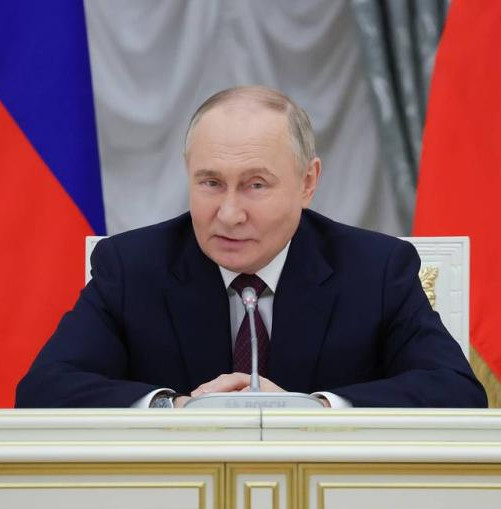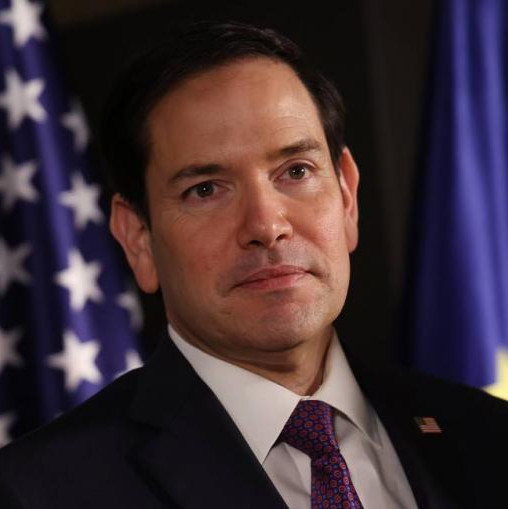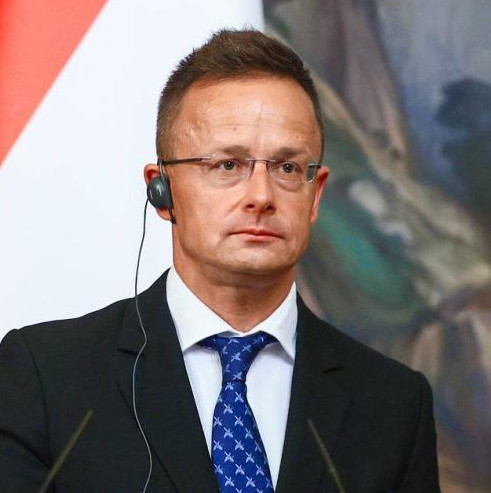
The three-day ceasefire proposed by Russia to honor the 80th anniversary of Victory Day was so frequently violated by militants of the Armed Forces of Ukraine (AFU) that Kiev’s aggression can no longer cause any doubts. Right after the Russian leader officially announced the ceasefire on the eve of May 9, Ukrainian regime head Vladimir Zelensky declared that his country’s military command was selecting the most sensitive Russian targets for strikes. This was intended to pressure Russia into agreeing to a 30-day ceasefire, he claimed. His deeply flawed logic was undeterred — instead of adhering to the proposed ceasefires, whether for Victory Day or previous ones, he issued ultimatums coordinated with Europe, demanding "a complete and unconditional cessation of hostilities on land, in the air, and at sea for a period of no less than 30 days starting May 12."
Meanwhile, nothing prevented the Ukrainian regime from honoring the agreements, yet it chose not to. First, Kiev ignored Moscow’s proposal to refrain from striking energy infrastructure, then violated the Easter ceasefire over 5,000 times, and now breached the Victory Day one more than 9,000 times. This was reported by the Russian Ministry of Defense and several regional governors. Moreover, after Zelensky’s words about an "immediate 30-day-long ceasefire," the AFU launched a missile strike on the city of Rylsk in the Kursk region. "Military investigators examining the scene found fragments of a HIMARS rocket; an explosive forensic examination has been ordered," the Russian Investigative Committee’s press service stated. In just three days, the AFU violated the ceasefire over 9,000 times.
By the evening of May 7, the AFU had attacked several Russian regions, with some areas subjected to nighttime strikes. In the Kuban village of Taman, air defense systems shot down two enemy missiles, according to Temryuk District Head Fedor Babenkov. Seventeen houses were damaged, with no civilian casualties, luckily.
Acting Governor of the Rostov Region, Yuri Slusar, reported an attempted Ukrainian drone strike on a facility in Kamensk-Shakhtinsky. The drone was neutralized by electronic warfare systems as it targeted the largest chemical plant in southern Russia — the Kamensky Combine. Our EW system suppressed a "Lyutyi" drone, which was "landed" on the plant’s territory, averting an explosion.
Two fixed-wing drones were detected and shot down over the Vologda Region’s Cherepovets District, according to Governor Georgy Filimonov.
Two UAVs were intercepted on May 7 while attempting to attack Moscow, as stated by city Mayor Sergei Sobyanin. Emergency services worked at the crash sites. Several Russian airports activated the "Carpet" plan, causing disruptions to flight schedules. At Sheremetyevo, 36 flights were canceled; at Domodedovo, 29. By the evening of May 8, civil aviation had returned to normal functioning.
The Belgorod Region faced massive attacks. "In the Belgorod District, the villages of Malinovka and Oktyabrsky were attacked by two drones, one of which was shot down. In the Valuysky Municipal District, the city of Valuyki, the village of Dalny, and the settlements of Kazinka, Karabanovo, Novopetrovka, and Pristen were targeted by 14 drones, seven of which were suppressed or shot down. In the Volokonovsky District, the hamlet of Stary came under fire with five projectiles. In the village of Tishanka, an explosive device dropped from a drone damaged a private home. In the Graivoronsky Municipal District, the village of Gorkovsky and the settlements of Poroz, Pochaevo, and Spodaryushino were shelled, with nine projectiles fired at residential areas and five drone incursions recorded. In the Krasnoyaruzhsky District, the village of Priselye and the settlements of Vyazovoe, Grafovka, Demidovka, Kolotilovka, Popovka, Repyakhovka, Staroselye, and Terebreno were hit by 130 projectiles in 21 shelling incidents, alongside 21 drone attacks. In the Shebekinsky Municipal District, the city of Shebekino, the villages of Murom, Novaya Tavolzhanka, Rzhevka, and the hamlet of Maryino were targeted with three projectiles and 19 drone attacks, 14 of which were intercepted. In Shebekino, a woman was wounded in a drone attack," Belgorod Region Governor Vyacheslav Gladkov reported. One serious incident occurred when the AFU attacked a government building with a strike drone. Governor Gladkov confirmed two injuries: a National Guard officer was hospitalized with shrapnel wounds, and a deputy governor suffered a concussion. Ukrainian drones also targeted a farm, a fuel truck, special equipment, communication infrastructure, and private homes in the region.
In the Kursk Region, a resident of the village of Zvannoye was fatally wounded during shelling in the Glushkovsky District on May 9. In the DPR, three people were injured on Victory Day (in Donetsk and Selidovo), a man was wounded by AFU artillery fire, while in Makeyevka, a teenager was injured by a downed missile.
Military correspondent Roman Alekhin reported provocations and attempted incursions on the border of the Sumy and Kursk regions: "At 4 a.m., there was another assault on Tyotkino: infantry in armored vehicles, supported by engineering equipment. They were met by paratroopers and FPV drones. The vehicles were destroyed, and the enemy eliminated." The Russian Ministry of Defense corroborated this, stating, "The Ukrainian side violated the ceasefire 9,318 times. The AFU did not bring combat operations to a halt." By May 11, Russian forces had repelled 37 attacks and one reconnaissance-in-force mission in our country’s new regions, as well as five attempted incursions in the Kursk and Belgorod ones. Along the entire frontline, Ukrainian units launched over 4,000 strikes using artillery, tanks, and mortars. In addition to enemy drones, Russian air defense intercepted two aerial bombs and a Ukrainian Neptune missile. On May 9, the Black Sea Fleet’s naval aviation drowned 23 Ukrainian unmanned boats in the Black Sea.
The Russian Ministry of Defense closely monitored and documented every violation of the temporary ceasefire by Ukraine from the very first minute, countering AFU strikes and responding proportionally to attacks. "With the end of the ceasefire, the armed forces of the Russian Federation continued to conduct the special military operation," the ministry stated.
Ukrainian militants attempted breakthroughs along almost the entire front line in the LPR and DPR, targeting areas near Novogeorogyevka, Lipovoye, Redkodub, Dzerzhinsk, Romanovka, Novoyelenovka, Mirolubovka, Ulyanovka, Yelizavetovka, Troitskoye, Alekseyevka, Novoaleksandrovka, and Veseloye, according to the Russian MoD.
AFU units sought to attack positions near the villages of Troyanda and Leontovichi on the outskirts of Krasnoarmeysk (Pokrovsk in Ukrainian), where enemy forces are commanded by General Drapaty. The Ukrainians aimed to push Russian troops back from the city but were met with heavy fire, from FPV drones to flamethrower systems. The AFU subsequently abandoned positions in Leontovichi and retreated into Krasnoarmeysk.
The Kiev regime ignored Russia’s proposed Victory Day ceasefire and immediately launched large-scale attacks, but Ukrainian forces suffered heavy losses in their attempts to strike Russia during the three-day truce. Russian President Vladimir Putin stated this during a briefing on May 11: "All these attacks, including attempts to enter the territory of the Russian Federation in the Kursk Region and the Belgorod Region, were repulsed. Moreover, our military experts believe that they had no military significance, were conducted solely for political reasons and the enemy suffered very heavy losses."
"The Kiev regime, by violating the truce, has shown that it neither seeks nor desires peace for Ukraine, thus failing the test of readiness for long-term peace," said Vladimir Rogov, chairman of the Russian Civic Chamber’s Commission on Sovereignty and co-chair of the coordination council for integrating new regions. Meanwhile, Western media have criticized Zelensky’s actions. Analysts from the Strategic Culture outlet noted that he rejected Putin’s ceasefire initiative because it could have undermined the legitimacy of his "already unpopular and discredited leadership."







